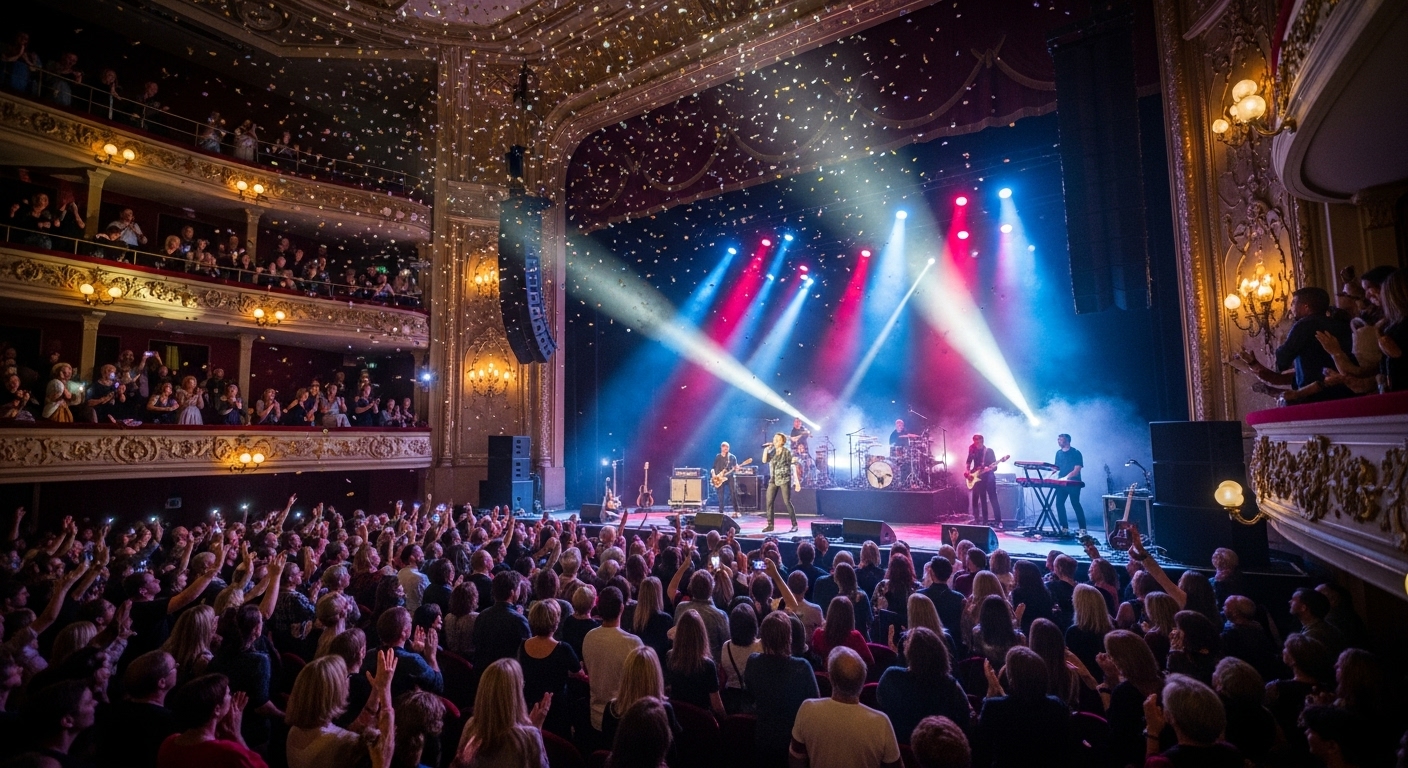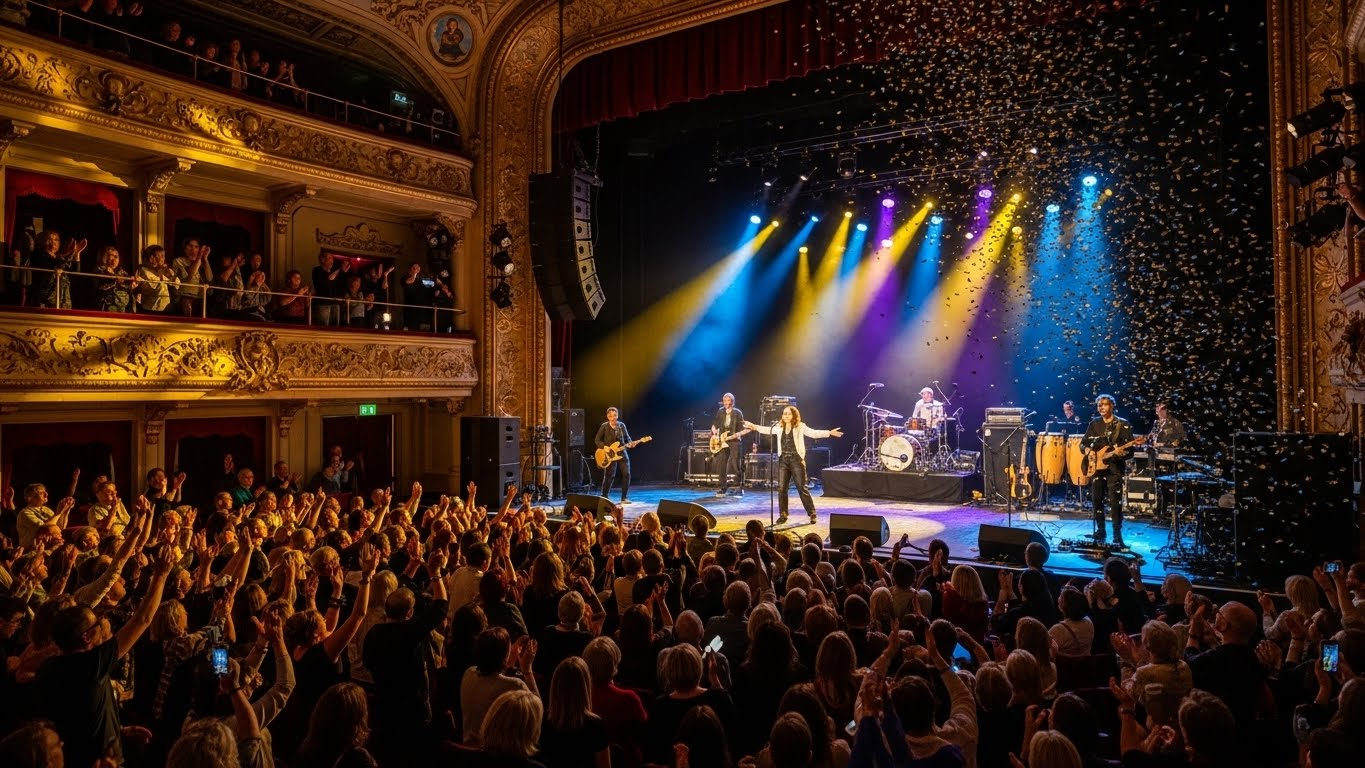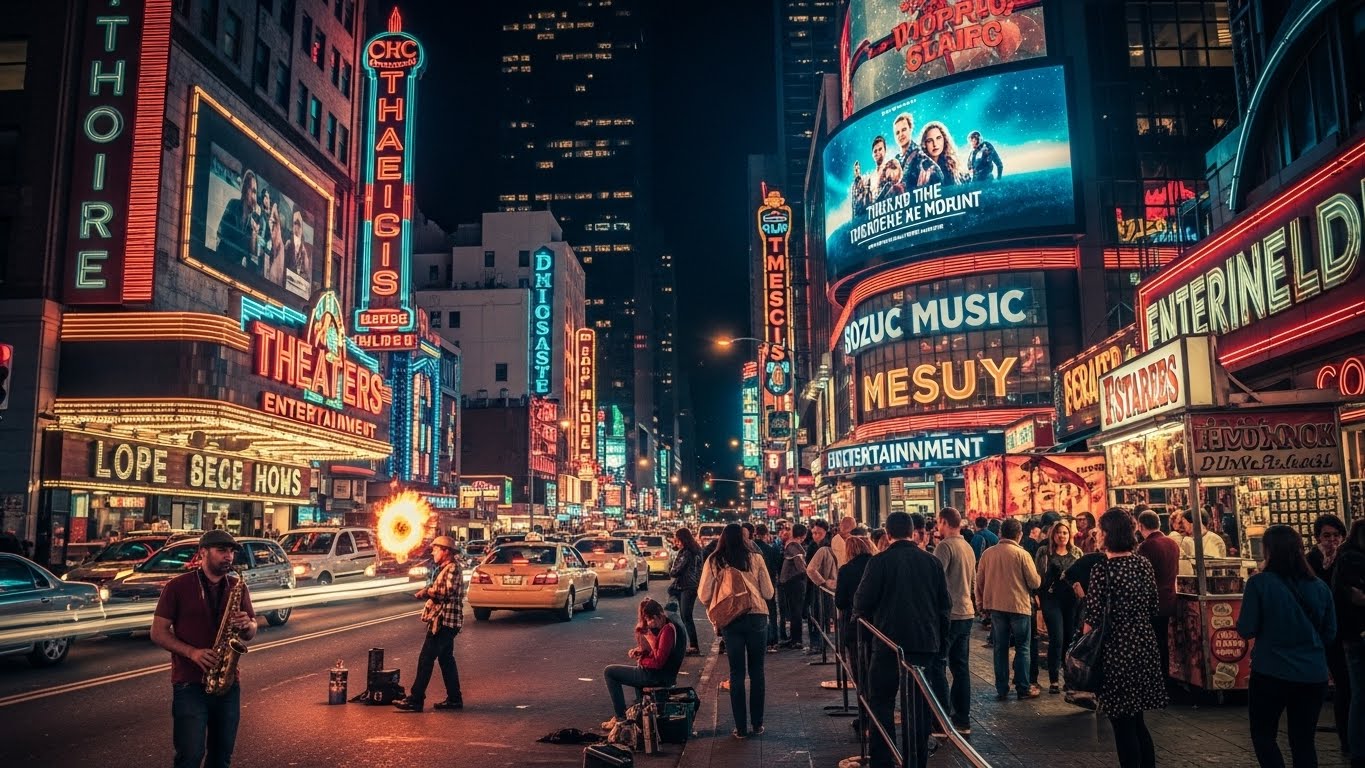Entertainment has been an integral part of human culture for centuries. From ancient theater performances to the invention of film, music, and television, the way we experience leisure and joy has always been shaped by the technology and culture of the time. Today, entertainment is experiencing a seismic shift. With the advent of the internet, streaming services, virtual reality, and interactive media, how we consume entertainment is changing faster than ever before. In this blog post, we’ll explore the evolution of entertainment and how modern trends are reshaping our approach to free time and leisure activities.
The Rise of Digital Entertainment: From Cable TV to Streaming
The entertainment landscape has undergone a dramatic transformation over the past few decades. Just a few decades ago, the majority of people turned to traditional television and cable services for their entertainment needs. The family TV was the center of many households, and people scheduled their evenings around primetime TV shows and movies. However, the rise of digital technology has drastically altered this paradigm.
The introduction of streaming platforms like Netflix, Hulu, Amazon Prime Video, and Disney+ has changed the way we watch TV and movies. These platforms allow viewers to watch content on-demand, whenever and wherever they choose. The ability to binge-watch entire seasons of shows at once has shifted the focus from weekly TV episodes to a more personalized, on-demand experience. This shift in viewing habits has also led to a decline in traditional cable TV subscriptions and a rise in cord-cutting, where people opt for internet-based streaming services instead of cable bundles.
This revolution in entertainment consumption has given rise to an entirely new culture of “content creators” — people who produce and share videos, web series, and short films on platforms like YouTube and TikTok. Social media platforms have become a significant part of our entertainment landscape, making it possible for anyone with an internet connection to create and share content with a global audience. The democratization of entertainment has allowed diverse voices and perspectives to emerge, and social media has become a major hub for comedy, drama, music, and news.
Interactive Entertainment: Video Games and Beyond
While watching movies and TV shows has remained a staple of modern entertainment, another major trend is the rise of interactive experiences. Video games, once a pastime for children and teenagers, have now become a dominant force in entertainment. The global gaming industry is now worth over $150 billion, surpassing both music and film industries in revenue.
One of the biggest reasons for this rise in popularity is the immersive, interactive nature of video games. Unlike traditional forms of entertainment, video games allow players to control the narrative and make decisions that affect the outcome of the story. Whether it’s battling in Fortnite, exploring new worlds in The Legend of Zelda, or solving puzzles in Minecraft, gaming offers a level of engagement that passive media like TV or movies simply cannot.
Additionally, esports, the competitive side of gaming, has become a significant part of the entertainment ecosystem. Professional gamers and esports tournaments are now watched by millions of fans worldwide. Games like League of Legends, Dota 2, and Counter-Strike: Global Offensive have transformed gaming from a solo activity into a global spectator sport. Esports’ growth in popularity has even led to partnerships with major brands and traditional sports leagues, blurring the lines between digital and physical sports.
Furthermore, virtual reality (VR) and augmented reality (AR) are opening new frontiers in interactive entertainment. VR headsets allow players to immerse themselves in entirely new worlds, while AR experiences, such as the global phenomenon Pokémon GO, blend the digital and physical worlds. As these technologies continue to evolve, the potential for truly immersive and interactive entertainment experiences is limitless.
The Role of Social Media in Shaping Modern Entertainment
In the past, entertainment was largely one-directional. The audience consumed content created by professionals and entertainers. Today, however, social media has made entertainment a more collaborative and participatory experience. Platforms like Instagram, TikTok, YouTube, and Twitter allow users to engage directly with their favorite celebrities, influencers, and even their friends, creating a more personalized form of entertainment.
Social media has also created new types of entertainment, such as viral challenges, memes, and user-generated content. The rapid rise of TikTok, for example, has changed the way people create and share short-form videos, often involving lip-syncing, dance routines, and comedic sketches. What once may have been limited to professionally produced television or film content is now created by everyday users with just a smartphone and a creative idea.
Influencers have become a dominant force in modern entertainment. These individuals, often with large followings on platforms like Instagram or YouTube, are changing the way brands market their products and services. Influencers are not just creators—they are the new celebrities, with the ability to shape trends, influence opinions, and entertain millions of people on a daily basis. The line between traditional celebrities and social media stars is becoming increasingly blurred.
On-Demand Experiences and Personalized Content
One of the most significant shifts in modern entertainment is the move toward on-demand, personalized content. With the help of algorithms and data analytics, streaming platforms can recommend movies, shows, and music tailored to each individual’s preferences. Services like Netflix and Spotify curate personalized experiences based on your past viewing and listening habits, making it easier than ever to find content you love.
This personalization of entertainment isn’t limited to streaming services. Social media platforms like Facebook and Instagram use algorithms to determine the content you see in your feed, while YouTube recommends videos based on your watching history. These algorithms have made it possible for users to discover content they may not have otherwise found, while also ensuring they stay engaged with the platform.
The growing popularity of podcasts and audiobooks is another testament to the demand for on-demand content. People now listen to entertainment and educational content on the go, whether during commutes, workouts, or household chores. Podcasts, in particular, have surged in popularity, offering a wide range of topics, from storytelling and interviews to comedy and self-improvement.
The Impact of Streaming and Digital Music
Music has always been an essential form of entertainment, but the way we consume it has changed dramatically in recent years. In the past, people would buy albums or singles on vinyl, cassette tapes, or CDs. Today, platforms like Spotify, Apple Music, and YouTube have made music streaming the dominant form of music consumption. These services allow users to access millions of songs instantly, on-demand, and across multiple devices.
The rise of music streaming services has also changed how artists distribute and promote their music. Independent artists can now reach global audiences without the need for a record label, and social media platforms like TikTok have become powerful tools for music discovery. A song can go viral on TikTok and become a global hit overnight, turning unknown artists into international stars. This has democratized the music industry, allowing for greater diversity in the types of music that reach the mainstream.
Streaming services have also changed how we experience live music. Virtual concerts and live streams have become increasingly popular, particularly during the COVID-19 pandemic when physical events were restricted. Artists have turned to platforms like Twitch, Instagram Live, and YouTube to perform live for their fans, offering a more intimate experience for viewers around the world.
The Future of Entertainment: What Lies Ahead?
The future of entertainment is exciting, with new technologies constantly reshaping the industry. The rise of virtual reality (VR) and augmented reality (AR) is likely to play a major role in the next era of entertainment. We may soon see fully immersive VR experiences where fans can interact with their favorite shows or movies in ways we never imagined before.
Artificial intelligence (AI) is also expected to play a significant role in entertainment, from personalized content recommendations to AI-generated music, art, and films. As technology continues to advance, the line between the digital and physical worlds will continue to blur, creating more hybrid experiences that mix the two.
Moreover, the rise of decentralized platforms, such as blockchain-based services, could transform how content creators and consumers interact. This could empower artists and entertainers by allowing them to retain more control over their work and how they monetize it. With the continued growth of online communities, entertainment may become even more participatory, as fans take on more active roles in the creation and distribution of content.
Conclusion: A New Era of Entertainment
Entertainment has always been a mirror of society’s values and technological advancements. Today, we are living in the most dynamic period in the history of entertainment, where boundaries are constantly being pushed, and new forms of media and technology emerge at a rapid pace. Whether it’s through on-demand streaming, immersive gaming experiences, or viral social media content, the way we consume entertainment is changing, and it’s only going to keep evolving.
As technology continues to advance, the future of entertainment holds endless possibilities. What we do know for sure is that entertainment is no longer just about passive consumption; it’s about interaction, personalization, and a deeper connection to the content we love. For the first time in history, we are all able to shape our own entertainment experiences, and that is a revolution worth celebrating.



